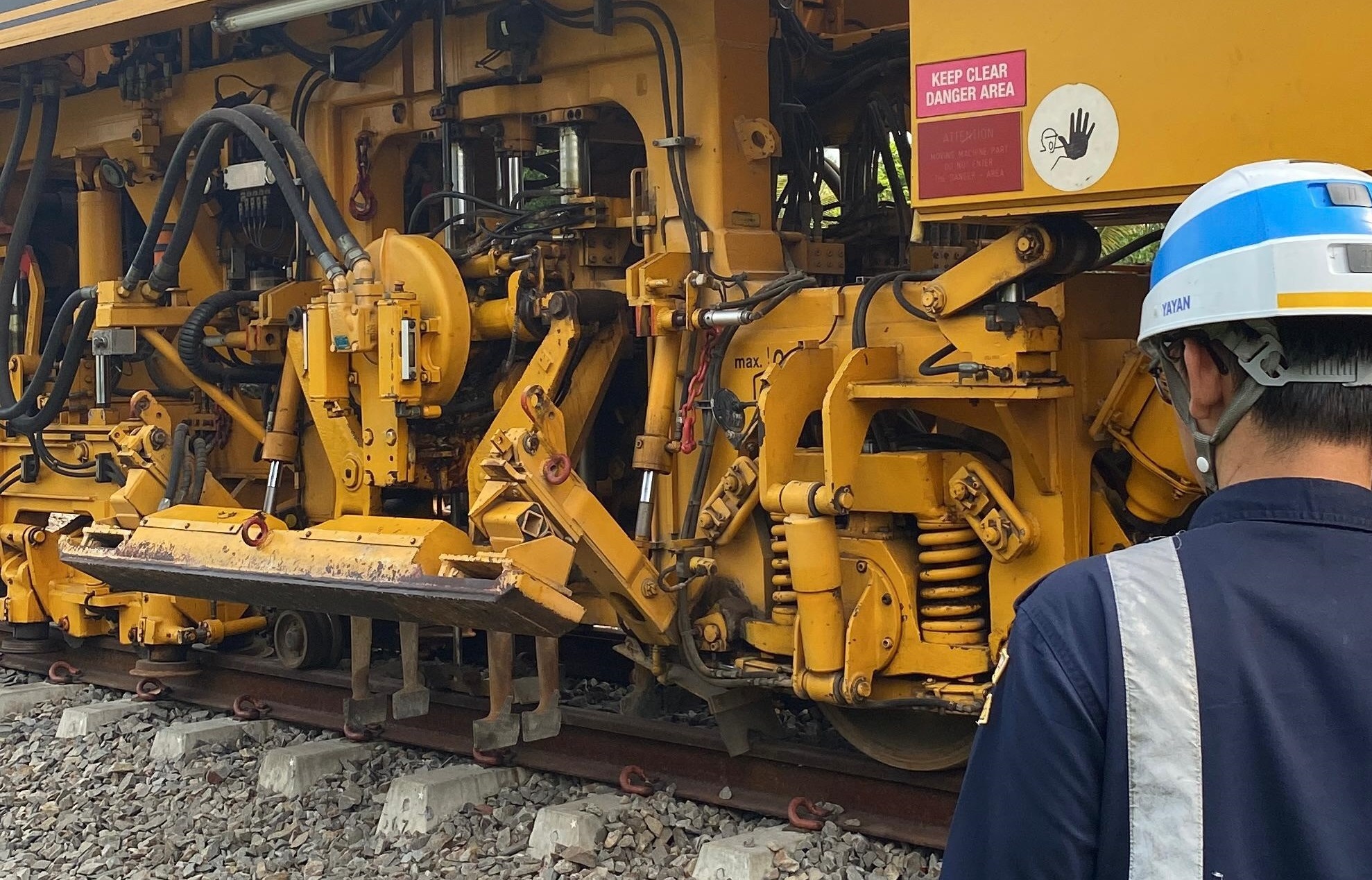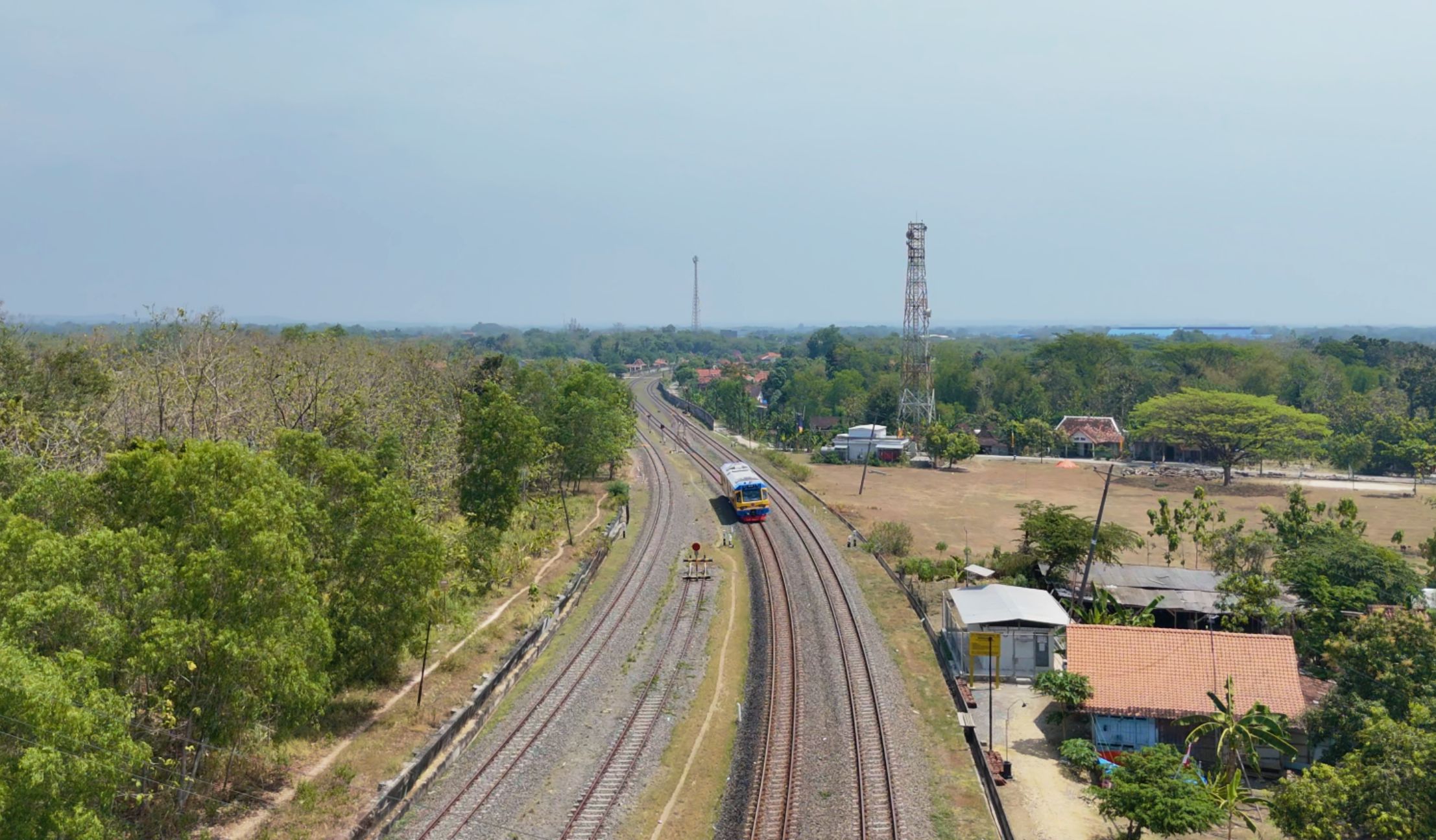Prepare Institutional Infrastructure, Keep Up With Railway Technology Leap
Grobogan – The Railway Maintenance Center is prepared to become a vital state-owned entity capable of keeping pace with the rapid development of railway transportation technology. At least that is what the Director of Railway Infrastructure, Directorate General of Railways, Hengki Angkasawan, said when he was at the Ngrombo Grobogan Workshop, Central Java, Sunday (6/10/2024).
Hengky came with several stakeholders related to the development of the railway transportation sub-sector. They are from the Presidential Staff Office (KSP) and Expert Staff from Commission VII DPR RI.
During his official visit to the Railway Maintenance Center, he brought a special message from the Director General of Railways to prepare the development of the Center in the field of railway maintenance, because trains with advanced technology are actively operating in Indonesia, and will continue to develop in the future, so the Balai's infrastructure is needed to be able to keep up with the leap. railway technology.
"Modern trains are already operating in Indonesia, currently there are MRT, LRT, and high-speed trains, (Baperka must) start making studies as to whether there is a need for cooperation with CRRC to meet the needs for managing modern train technology," said the Director General (Railways). "We need to pay attention to harmony between railway facilities, infrastructure and human resources, we must have the same goal between the center, center and operator, so if the frequencies are different, it will be difficult in terms of control," explained Hengki when referring to the direction of the Director General of Railways.
Looking at the various specifications of trains operating in Indonesia, it is necessary to prepare the infrastructure for managing trains in Indonesia.
The DPR RI Commission VII Expert Team sees that the institutional posture of the Railway Maintenance Center is similar to the Aviation Facilities Calibration Center (BBKFP) which is a Public Service Agency (BLU) in the air transportation sub-sector. The Center for Aviation Facilities Calibration prepares the needs for institutional infrastructure development before the demand (request for flight certification) becomes high.
The result is that currently the Business Development Division at BBKFP manages several Strategic Business Units (SBU) owned by BBKFP. Some of these SBUs include calibration services, training centers, aircraft maintenance and aircraft operation services (charter).
Judging from its official website, BBKFP is a government agency that provides services for air calibration for both civil and military airlines. The scope of services includes calibration, inspection and testing equipment that supports air transportation as navigation tools, landing aids, radar and communications. Air transportation support equipment requires periodic inspection and calibration to ensure proper and accurate operation of the equipment. The main goal is safe flight operations and meeting safety standards.
Looking at the benchmark between the Railway Maintenance Center and the Aviation Facilities Calibration Center, Hengki saw that there was a crossover between the two government centers. Both operate in the transportation sector, only in different sub-sectors. BBKFP provides aircraft maintenance services while the Railway Maintenance Center carries out railway facility maintenance services.
"(Seeing what BBKFP is doing) what potential does Ngrombo (Railway Maintenance Center Ngrombo Workshop) need in the future? so that the Transfer of Technology (ToT) process in the national railway sub-sector can be carried out well, certification in railways is the government's domain, so that our Center is able to do that, prepare human resources and tools, accelerate it, so that it can be seen in the next ten years (in the future) Baperka what do you want to be," explained Hengki.
In line with central policy direction, the Railway Maintenance Center has made various efforts to increase the institution's capacity. According to the Head of the Railway Maintenance Center, some of them include sending personnel for training to learn about LRT and High Speed Trains, which is facilitated by PPI Madiun. In practice, the Railway Maintenance Center can fill the gap as a training center institution in the field of advanced expertise (expert) railways. This is what differentiates it from existing railway educational institutions which tend to provide skills education at the initial level.
"We, as technical professional users, must have an institution that accommodates the development of professional (expert) level railway competencies," explained Prayudi, seeing the potential that could be developed by the Railway Maintenance Center as a training center entity.
In fact, according to the Director of Railway Infrastructure, the Railway Maintenance Center has potential if it carries out its role as an LSP (Professional Certification Institute), this is considered to be still in line with the training center services mentioned by the Head of the Railway Maintenance Center.
The development of this institution aims not only to offset the leap in railway technology which has been used as a mode of mass transportation in Indonesia, but to welcome the growth of local industry which will continue to increase in the future.
On the same occasion, Prayudi explained the results of the study of the Railway Maintenance Center's strategic plan until 2030. The land area for the development of the Ngrombo workshop until 2030 is planned to be up to 92 hectares, including one for the construction of test track facilities or dynamic test tracks up to 5 km long. With potential PNBP income of up to IDR 107 billion in realization in 2024, the Railway Maintenance Center has the ability to develop the institutional capacity according to the roadmap that has been prepared.
The transformation of Balai into a Public Service Agency is no longer an obligation, but has become a necessity if we want to develop according to both internal and external demands. (yogo)






.jpg)



Komentar
LOGIN FOR COMMENT Sign in with Google